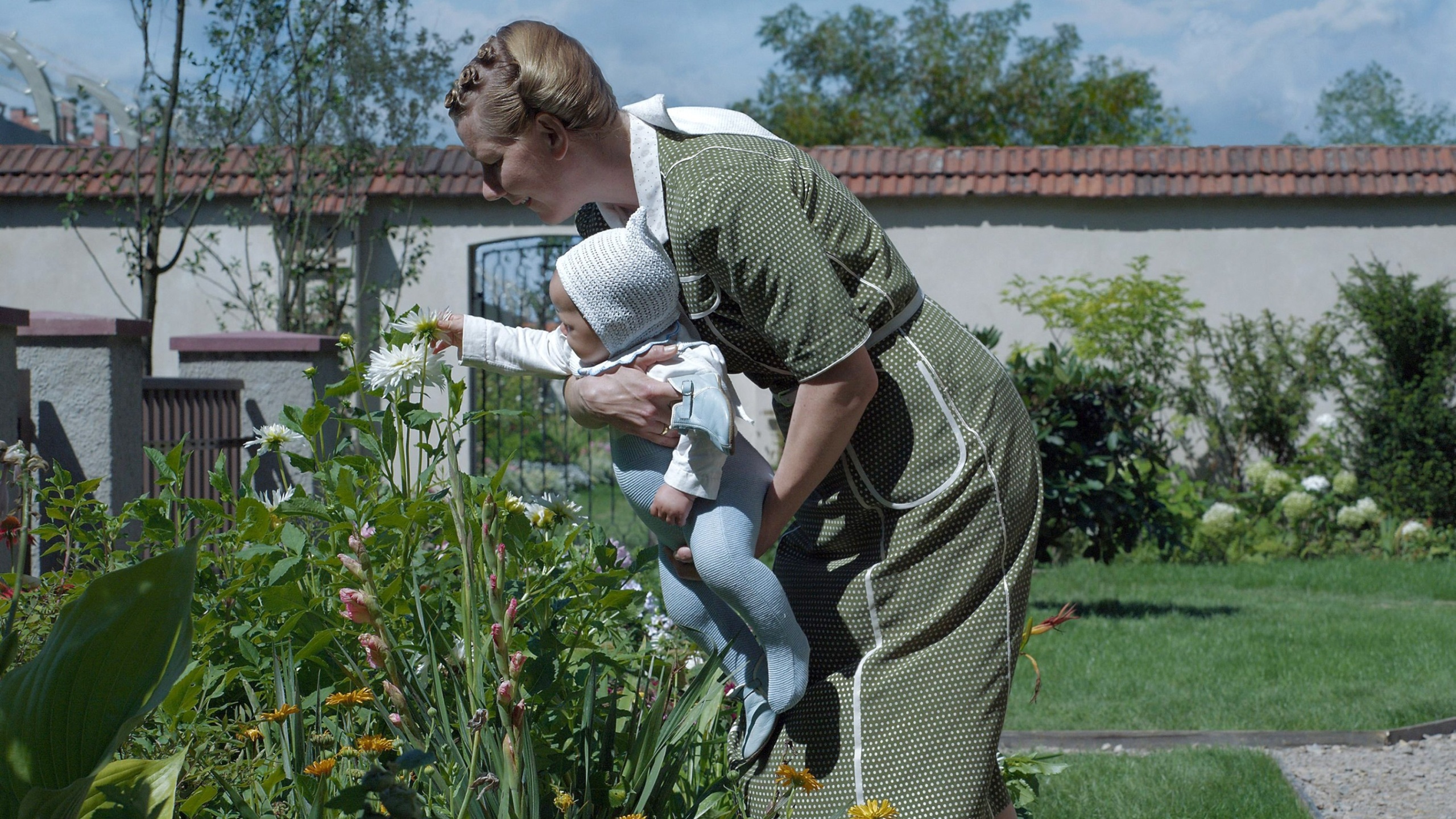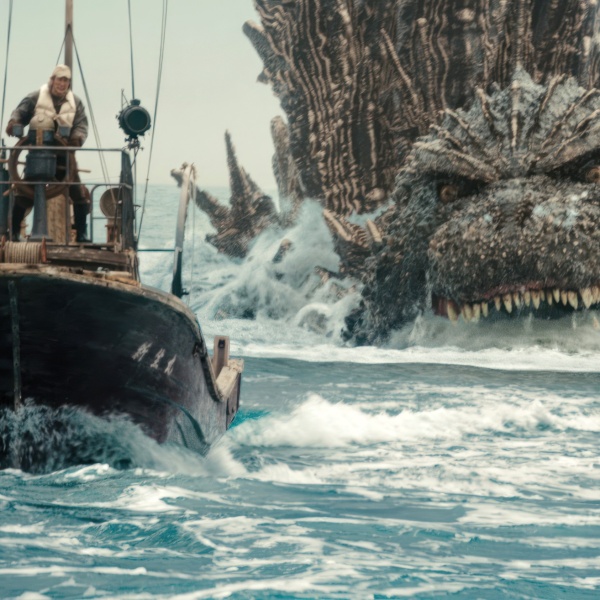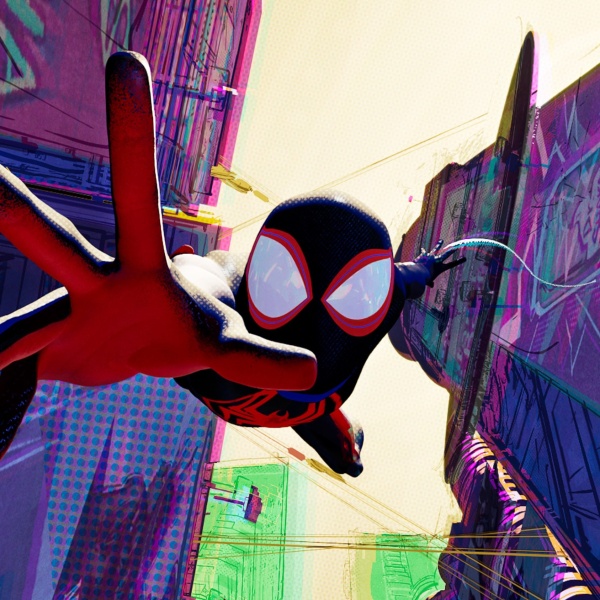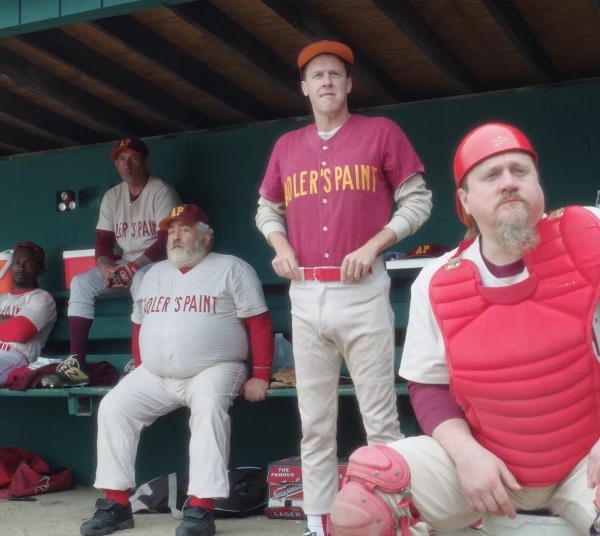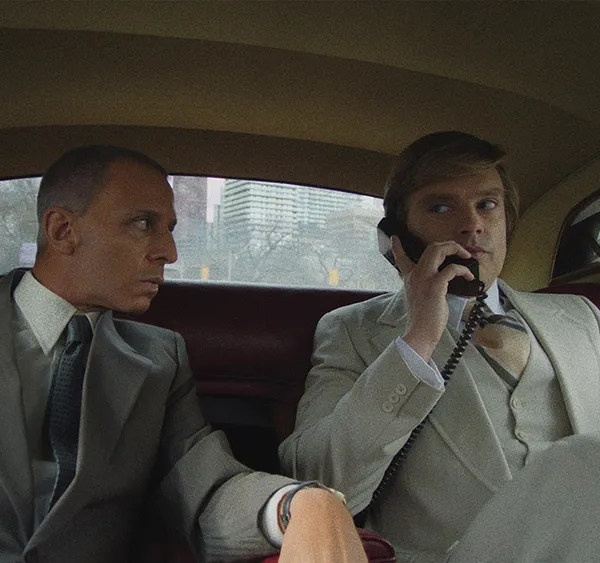Long-working British filmmaker Jonathan Glazer celebrated his first Academy Award win at the 96th Oscars, taking home the Best International Feature Film prize for “The Zone of Interest.”
The Holocaust drama, starring Christian Friedel and “Anatomy of a Fall” Oscar nominee Sandra Hüller as the German Nazi commandant Rudolf Höss and his sociopathic wife Hedwig, has been steadily wending its way through the awards season since earning the Grand Prize at the 2023 Cannes Film Festival. Glazer loosely adapts a Martin Amis novel for this searing story about the Höss’ indifference to the Auschwitz horrors happening on the other side of their bucolic garden; the family lives with their three children in an emotionless bubble while Jews are exterminated en masse.
“Zone of Interest” never shows those horrors on screen, instead relying on Johnnie Burn’s Oscar-nominated sound design to convey the horrifying reality as screams and shots and roiling furnaces are heard just over the concertina wire lining the camp’s walls.
Glazer’s previous films — including crime thriller “Sexy Beast,” alien-among-us sci-fi horror “Under the Skin,” and taboo reincarnation romance “Birth” — have never before been recognized by the Academy despite retaining cult classic status (and a recent showcase on the Criterion Channel).
Glazer shot “The Zone of Interest” almost like reality television, with 10 cameras installed throughout the set in Poland (the actors lived nearby in the village of Oświęcim during filming) without crew to facilitate, allowing the actors to move through the set freely almost as if in a play. This lends to the movie’s eerie surveillance-like quality. Cinematographer Łukasz Żal devised the camera system as “simple, honest, and functional,” as he told IndieWire, with detailed floor plans for each to be situated within the walls of the Höss house.
“The actors were there for hours doing their things, living there, speaking, and we were outside, just witnessing this completely, and I was losing total control,” Żal said. “I could look at focus and everything is OK in terms of technology, but then there are the performances, so we need to anticipate where they will go and where to put the cameras because we didn’t know. For example, if the boys use a bow and arrow, then we wanted a wide shot. But what if they sit over here instead and play with a stick?”
“The axiom of the whole project was ‘make it present,’” said Glazer. “We are looking at the perpetrator square in the eye. We can’t dismiss it as a film. We can’t say, ‘I’m safely watching a film.’”
Hüller, a German actress, said she almost turned down the prospect of playing a Nazi in the film. “I had a strong physical response to that, it really made me sick,” she told IndieWire, but it was meeting with Glazer that convinced her to take on the role of Hedwig. “He was waiting for me. I can’t tell you how grateful I am for that because that’s rare in the first place. But I had to make sure that it’s the right decision because this could have gone wrong so badly. It was such a risky thing to do to be applauded by the wrong audience, for example, like, some people could fetishize this kind of life that we live there in front of the camera. People who are fond of this sort of mindset.”
Friedel added to IndieWire, “[Sandra Hüller] creates more from the outside to dive into the inside, and she said one important sentence, and I was really thinking a lot about this: ‘I don’t want to share my tears with this woman because I hate this woman.’ Yes, I hate this man, too, so I think this is a really great sentence. After the shooting, I was thinking about her thoughts, and, my God, Sandra was right at the beginning to create borders, to protect herself. I was not protecting myself. I was sometimes naïve and following Jonathan’s decisions.”
But he said, “After the shooting, I was really surprised at the dimension of this huge intense cocktail inside of me.” In Friedel’s words, that “dimension” is that Rudolf Höss “is not only a father, he is a commandant, and he created and organized a huge, incredible crime. That’s a dimension for the audience and not for me as an actor.”
It took Friedel many hours and 30 takes to put together the climactic moment in which the Commandment dry-heaves on a stairwell on the way back to Auschwitz after being briefly relocated. “He’s thinking he’s sick in a way, or I don’t know, but here the body may be trying to reject this man out of this body. The body tells the truth, and he’s fighting his mind, against his darkness. Maybe he realized his guilt, maybe he realized the dimension of what he’s doing, but he’s not feeling guilty. He’s going on. History repeats, and we ignore the atrocities. We compartmentalize.”
